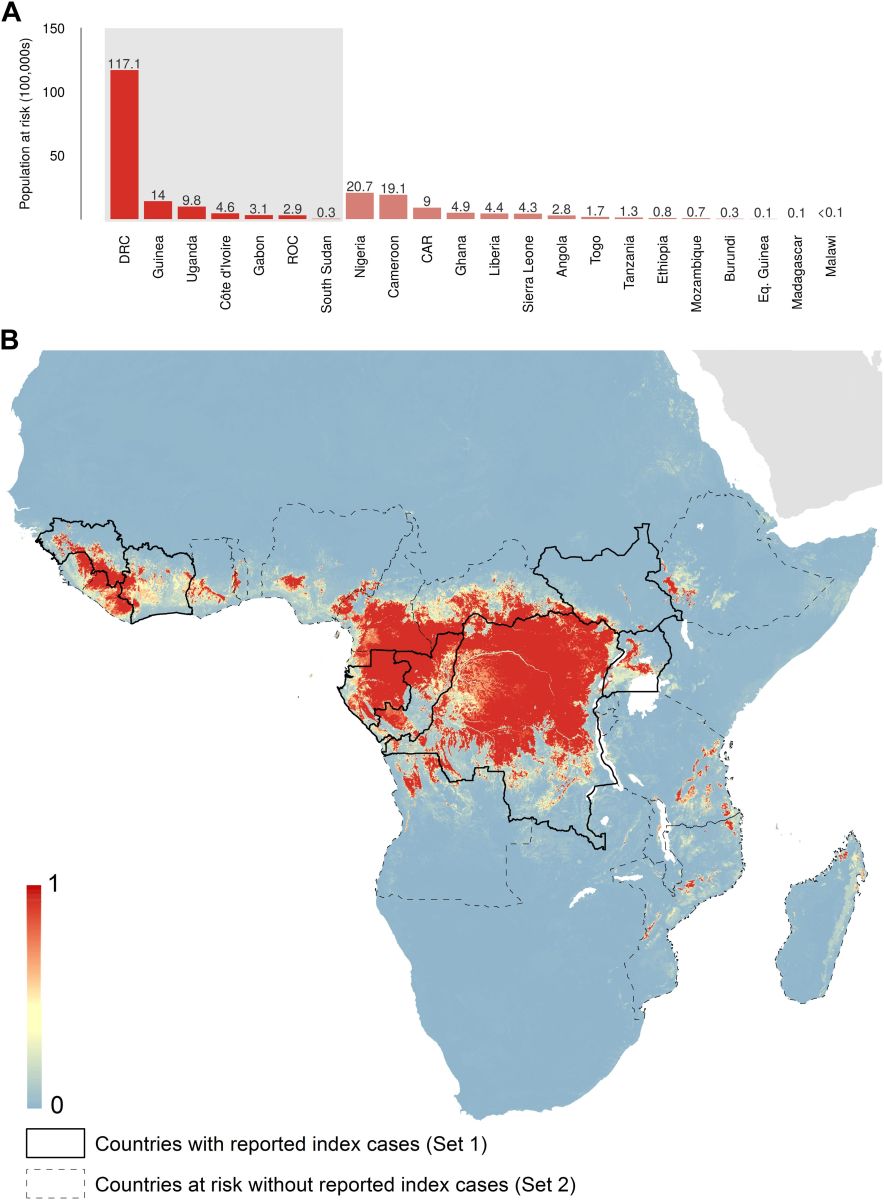Tracking the Ebola outbreak
Interview with
Why has the Ebola outbreak been so hard to control, and why has it hit the  world now? Colin Russell, a disease modeller from Cambridge University, explained to Chris Smith how many epidemics begin with an animals reservoir of the disease...
world now? Colin Russell, a disease modeller from Cambridge University, explained to Chris Smith how many epidemics begin with an animals reservoir of the disease...
Colin - The majority of pathogens that are perceived to pose a pandemic risk originate in animals. These are things like influenza viruses that come from pigs or from birds, Ebola viruses, which we typically get from bushmeat but have their original home in bats, and a plethora of other pathogens which cause a tremendously severe disease when they get into humans. The difficulty is that there's a tremendous number of pathogens that exist in animals all over the world. One of the main challenges that we face as scientists and public health officials is, picking which one of those is most likely to cause the next pandemic and developing measures to be able to mitigate the spread of that virus, should it become transmissible from human to human.
Chris - So, in other words, we know the risk is there, we just have to be alert to the fact that it can happen and pick it up quickly.
Colin - Indeed. I mean, response is really the critical element here. So, there have been a number of Ebola outbreaks over the last 40 years. They've been contained long before they ever reached the stage, just because in general, when response is swift and effective, it's easy to contain an Ebola outbreak. But it's when response is slower than one would like, things can turn into the situation that we have right now.
Chris - But arguably, Suzie English [in an earlier interview] was saying, Ebola was first described in 1976. The world was a much more primitive place in terms of medicine, communications, population was lower then than we have today and it's today that it's escaped and caused a big problem. Why is that?
Colin - It's a complex situation where there was not a sufficiently rapid response to bring the situation under control to limit the early stages of the spread of the disease. Once the disease gets into its exponential growth phase whereby, two cases create four cases, create 16 cases, etc. then it becomes exponentially more difficult to contain as well. Because when the number of individuals who are infected is doubling, the number of resources that it takes to control that sort of outbreak is more like quadrupling or worse.
Chris - So, in terms of actually doing surveillance, you would argue then that what we need to do is be aware of the fact we've got this risk, be aware of the fact that, as populations grow and people have more likelihood of coming into contact with wild animals- do we need some kind of network around the world then where scientists like you are watching for warning signs that something might be about to happen so you can deploy the sort of rapid response you're saying we need?
Colin - There's a variety of types of response networks that are administered by WHO, by various national governments, that are meant to detect abnormal activity. But the difficulty that we face in a variety of low income countries is there's a real difficulty in differentiating normal from abnormal. And so, in a lot of place in west Africa, people go in to see a doctor because they feel sick and without even doing any kind of diagnostic test, they're told that they have malaria and that they should go back home. And yet, there's a number of different diseases that have malaria-like symptoms in their early days. So, in malaria endemic portions of Africa, this is not an unreasonable thing to assume. But it means that you're going to miss those extraordinary cases that have the potential to set off situations like the one that we have right now.
One of the things that we need on a really fundamental level is we need the development of basic public health infrastructure worldwide. And something that I find shocking is that every year, approximately 1.8 million people die of diarrhoea. Now, those people aren't by and large in the UK. They're typically in low income countries where the public health infrastructure is generally very weak. But if we were to develop - we, as high income nations - were to develop the basic public health infrastructure in low income countries so they could deal with diseases like diarrhoea, we'd stand a much better chance of being able to discriminate ordinary diseases from extraordinary diseases and being able to catch cases like the current Ebola outbreak while it's still early enough, well, we could really do something about it.
Chris - In other words, it's all about prediction.
Colin - It's all about our ability to respond swiftly when something happens...
- Previous The world's reaction to Ebola
- Next The Ebola threat for gorillas










Comments
Add a comment